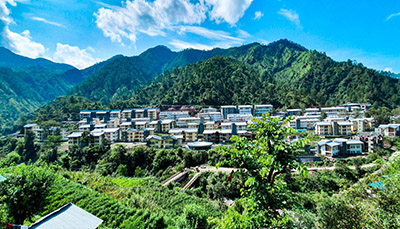Chandigarh/Mandi: Researchers at the Indian Institute of Technology Mandi, led by Dr. Dericks Praise Shukla and his PhD student Ms. Harsimranjit Kaur Romana, have uncovered insights regarding groundwater pollution caused by human activities, particularly agricultural runoff in Punjab.
Punjab, a major agricultural state, has witnessed a significant shift in crop patterns due to the Green Revolution, resulting in a heavy reliance on mono-cropping of rice and wheat.
Unfortunately, this intensive farming has led to extensive groundwater exploitation, with over 74% of irrigation relying on groundwater, especially during poor monsoon seasons.
As a result, groundwater levels have dropped, leading to deteriorating water quality, including heavy metal and radioactive contamination.
The consequences of this prolific agricultural activity have taken a toll on public health, with Punjab earning the unfortunate title of the "cancer capital" of India due to water pollution.
With 94% of the population in Punjab relying on groundwater for drinking, this pollution issue has become a grave concern.
While previous studies have highlighted groundwater quality problems in India, a comprehensive, time-based analysis of the region had been lacking.
The IIT Mandi study aimed to bridge this gap.
Dr. D.P. Shukla explained, "We aimed to assess how groundwater quality for drinking purposes changed from 2000 to 2020 at different places.
It also sought to examine ten-year trends in health hazards associated with contaminants like nitrate and fluoride, along with identifying regions with notably subpar groundwater quality."
The research findings have been published in the journal "Environmental Science and Pollution Research.
" The study involved measurements at over 315 sites in Punjab, revealing a worrying decline in water quality, particularly in the southwestern region, while the northeastern areas, nourished by Himalayan rivers, displayed better water quality.
This study not only highlights the alarming state of groundwater pollution in Punjab but also serves as a vital resource for policymakers.
It underscores the urgent need for mitigation measures and raises awareness among residents about locations with unsafe groundwater for drinking.
The study emphasizes the immediate attention required from the state government to investigate groundwater quality for both drinking and irrigation purposes.
These findings are expected to prompt actions aimed at safeguarding this invaluable resource.






